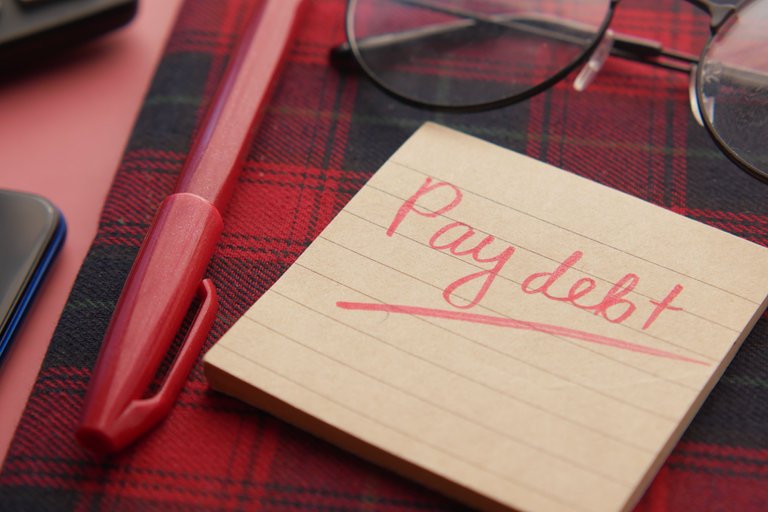Debt in and of itself isn't inherently bad, especially when one puts it into good use. Because it can serve as a powerful tool for investment and growth, but it's crucial to manage it wisely to avoid potential pitfalls.
Nowadays, the potential pitfalls of debt seem many, owing to the fact that it has become more accessible with seemingly low interest rates.
I've always been skeptical about the Buy Now Pay Later model and wondered how these companies make money and keep a profit. The catchy '0 fees/interest rate' on their landing page is too good to be true!
The Buy Now Pay Later model may seem attractive, since it seemingly allows us to buy something now and pay for it later, without paying any 'interest or fees'.
However, the problem is that it also encourages us to spend more than we can afford, or buy things that we simply do not need whenever the feeling of impulsive spending comes along.
A Look Into The Debt Trap
There a varied definitions of debt trap, depending on the view, from individuals and businesses to cities and nations.
This post will take a more general approach and define it as "a situation in which a debt is difficult or impossible to repay, typically because high interest payments prevent repayment of the principal." Source
A simpler way of saying it is a situation where we borrow more money than we can afford to repay, and end up paying more interest and fees than the principal amount.
It could be compared to getting stuck in a hamster wheel where we no longer can control the speed at which the wheel rotates. We can’t pay off the debt by just paying the principal amount, and since the interest rate payment is long overdue, it keeps increasing at a fast pace.
So in a way, we’re stuck in the wheel (debt) with a very hard way out of it.
Easy Access To Credit And Low Interest Rates
With the advancement of technology and the explosion of online platforms, it has become easier than ever to borrow money from various sources. Now it isn't only banks, but also fintech companies, peer-to-peer lenders, and even cryptocurrencies.
Here's where being financially literate becomes very important because the catch with some of these sources is that they charge high interest rates, hidden fees, or predatory terms, which is the main reason why it becomes difficult to repay the debt.
A financially literate can recognize this dynamic trade-off, but this usually isn't the case for a financially illiterate.
According to a report by the Pew Charitable Trusts, the average annual percentage rate(APR) for a payday loan in the US averages around 129% but it can go as high as 391%, which means that a borrower who takes out a $375 loan and pays it back in two weeks would owe $458.
Jumping from individual view and going up all the way to the national view takes us to a peculiar aspect of the debt trap. That is if/when nations fail to repay their debt, they can face political or economic pressure, or lose their sovereignty(figuratively) and strategic assets.
For example, a report from chathamhouse.org, showed that Sri Lanka borrowed heavily from China to finance its infrastructure projects. But, due to low returns, high costs, and external shocks, such as the civil war and the COVID-19 pandemic, the country was unable to repay its debt or meet its obligations to China.
This resulted in China gaining more influence and control over Sri Lanka’s assets and policies. And back in 2017, Sri Lanka had to lease the Hambantota Port to China for 99 years, in exchange for debt relief. This chosen port is strategically located near the Indian Ocean, and gives China access to a key maritime route.
In Closing
The debt trap is a complex and multifaceted problem that affects individuals, businesses, and countries in different ways. This post only explores the tip of the iceberg or an aspect of it.
The statement 'Debt is the new form of slavery.' isn't absolute, but it is very much applicable in many aspects of modern life.
One way to individually minimize the effects of the debt trap or even avoid is to not be greedy with money.
It is not the man who has too little, but the man who craves more, that is poor, said Seneca.
Thanks for reading!! Share your thoughts below on the comments.
Posted Using InLeo Alpha


I think a typical example of the debt trap based on your definition could be US-based student loans. I haven’t experienced the system, but I’ve seen many content creators on TikTok talk about how these loans have fucked up their finance. The lament about how they’ve been paying the loans for years after their graduation and employment, and still haven’t paid half the loan. And most of these people have pretty good stable salaries.
Right, that's a great example of a debt trap. Many students will work for a lifetime and still not be able to repay the loan. It's a financially scary situation to be, especially if one decides to take the traditional career path. There have been talks to cancel student debt in the US but I'm not sure how far that will go and what impact it will bring.
Thanks for stopping by :)
I don’t think they’ll cancel it. They’re making too much off of it to do that to themself. What happens to their “commitment” to give the poor and underprivileged a shot at education if they do?
Yes, I think it's mostly a business operation in the background. They might cancel a few to give hope to the rest but nothing concrete will come out of it.
I see them as words they throw in the air to move the public. The reality is that most don't care about the poor or the underprivileged.
And it’s not even a secret!
Yes! Almost everything is out in the open nowadays.
👍 ❤️ Upvoted ❤️ 👍
Upvoted based on suggestion from @thetimetravelerz. Please support thetimetravelerz by upvoting this comment
You have said it all. It is so easily accessible now that teenagers who don't know how to make proper use of money can easily access it with their phones putting their parents And loved ones into jeopardy. This is from an experience not too long ago of debts ranging in millions.
Yes, people are a bit more careless with how to spend because it seems so easy to do nowadays. There's always a cost to pay with easy access, and in this case is accumulating debt that they will find very hard to pay off.
Thanks for stopping by :)
The pleasure is always mine.🤩